Table of Contents
- Introduction
- 1. Oats and Whole Grains
- 2. Fatty Fish
- 3. Nuts and Seeds
- 4. Fruits and Vegetables
- 5. Legumes
- 6. Plant Sterols and Stanols
- 7. Olive Oil
- Key Takeaways
- FAQ
Introduction
Maintaining healthy cholesterol levels is crucial for overall well-being. By making the right dietary choices, you can significantly reduce the risk of heart diseases related to high cholesterol levels. In this article, we will explore various foods that help lower cholesterol levels naturally, providing you with a comprehensive guide to promote a healthy heart.
1. Oats and Whole Grains
Oats and whole grains are rich in soluble fibers that actively lower cholesterol levels in the body. Incorporating foods like oatmeal, brown rice, whole wheat bread, and barley can help reduce bad cholesterol (LDL) without affecting the good cholesterol (HDL).
Oats and whole grains are excellent additions to your diet if you want to avoid high cholesterol. They are rich in soluble fiber, which helps to lower LDL cholesterol levels, also known as the "bad" cholesterol. Including oats and whole grains in your daily meals can improve your heart health and reduce the risk of cardiovascular diseases.
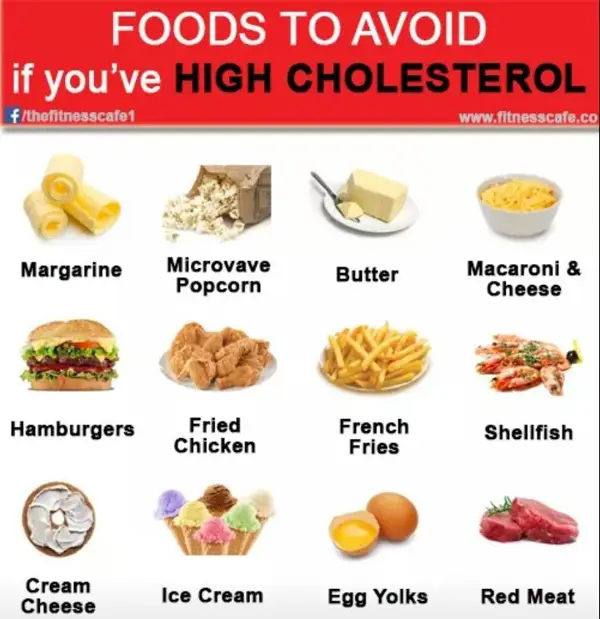
2. Fatty Fish
Fatty fish, such as salmon, mackerel, and sardines, are abundant in omega-3 fatty acids. Omega-3 helps reduce triglycerides in the blood, decrease inflammation, and lower cholesterol levels. Consuming fatty fish twice a week can be highly beneficial for maintaining heart health.
3. Nuts and Seeds
Almonds, walnuts, flaxseeds, and chia seeds are packed with healthy fats, fiber, and plant sterols, all of which can help lower cholesterol levels. Adding a handful of these nuts or seeds to your daily diet can provide significant cardiovascular benefits.
Nuts and Seeds
When it comes to managing cholesterol levels, nuts and seeds can be an excellent addition to your diet. These nutrient-packed foods not only offer various health benefits but can also help lower high cholesterol levels.
- Almonds: Rich in monounsaturated fats, almonds are known to reduce bad cholesterol (LDL) levels in the blood. They also contain fiber, antioxidants, and plant sterols, which help maintain heart health.
- Walnuts: Another heart-healthy choice, walnuts are high in omega-3 fatty acids that can effectively lower LDL cholesterol levels. They are also a great source of fiber, protein, and antioxidants.
- Flaxseeds: Packed with alpha-linolenic acid, flaxseeds help reduce cholesterol and maintain healthy blood vessels. These tiny seeds are also rich in fiber and omega-3 fatty acids.
- Chia Seeds: High in fiber, chia seeds can help lower cholesterol and promote heart health. They also provide a good amount of omega-3 fatty acids, antioxidants, and other essential nutrients.
- Sunflower Seeds: These nutritious seeds are loaded with healthy fats, fiber, protein, and vitamin E. Sunflower seeds can contribute to lower cholesterol levels and reduce the risk of heart diseases.
- Pumpkin Seeds: With their high fiber content, pumpkin seeds assist in lowering cholesterol levels. They are also packed with antioxidants, healthy fats, and various vitamins and minerals.
Remember, adding a moderate amount of nuts and seeds to your daily diet can be beneficial in managing cholesterol levels, but it's essential to keep portion sizes in check to avoid excessive calorie intake.
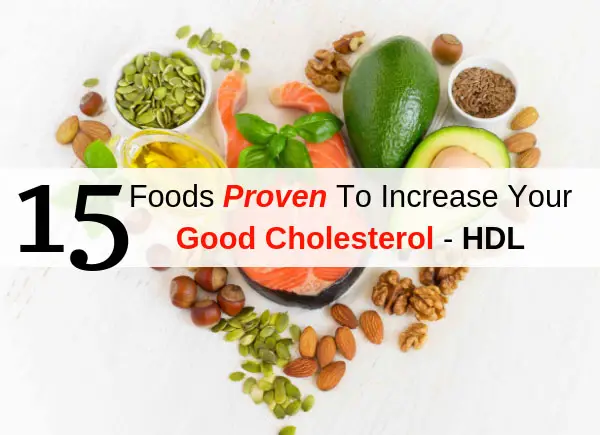
4. Fruits and Vegetables
Colorful fruits and vegetables, such as berries, oranges, spinach, kale, and broccoli, are loaded with antioxidants, vitamins, and minerals. These nutritious foods assist in preventing cholesterol buildup in arteries, protecting heart health.
List of Fruits:
- Apples
- Oranges
- Berries (Strawberries, Blueberries, Raspberries)
- Avocados
- Grapes
- Kiwi
- Pears
- Watermelon
- Pomegranate
List of Vegetables:
- Spinach
- Kale
- Broccoli
- Carrots
- Tomatoes
- Brussels Sprouts
- Cauliflower
- Cabbage
- Bell Peppers
Eating a diet rich in fruits and vegetables is beneficial for individuals looking to avoid high cholesterol. Fruits such as apples, oranges, berries, avocados, and grapes are excellent choices. They provide essential nutrients while also being low in cholesterol. Including kiwi, pears, watermelon, and pomegranate in your diet can further aid in maintaining healthy cholesterol levels.
Similarly, incorporating various vegetables like spinach, kale, broccoli, carrots, and tomatoes into your meals can significantly help in preventing high cholesterol. These vegetables are known for their high fiber content, which can help lower cholesterol levels. Additionally, Brussels sprouts, cauliflower, cabbage, and bell peppers are great options to add to your list of foods to eat.
Remember, a balanced diet comprising a variety of fruits and vegetables along with other healthy foods can contribute to maintaining a healthy cholesterol profile.
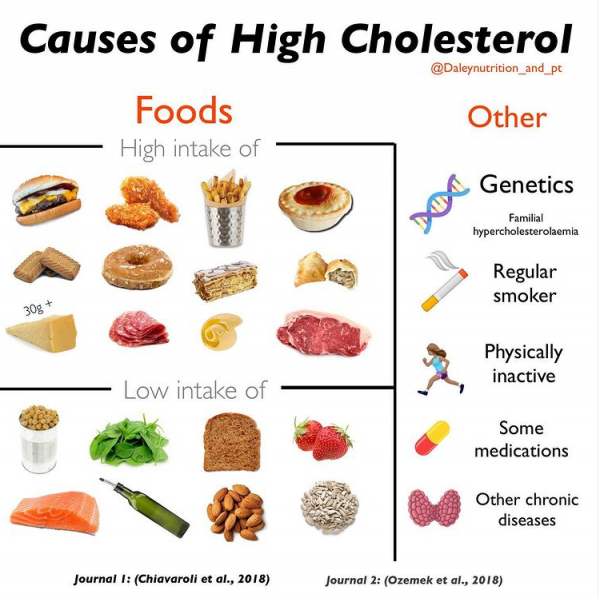
5. Legumes
Legumes, including lentils, chickpeas, and beans, are excellent sources of soluble fiber and plant-based protein. Incorporating legumes into your diet can improve cholesterol levels while offering essential nutrients and promoting a feeling of fullness.
Legumes are a fantastic addition to your diet if you're looking to avoid high cholesterol levels. They are packed with fiber, protein, and essential nutrients that can promote heart health. Here are five legumes you should include in your diet:
- Chickpeas: Chickpeas, also known as garbanzo beans, are high in soluble fiber, which helps lower LDL (bad) cholesterol. You can use chickpeas to make hummus, toss them in salads, or include them in your soups and stews.
- Lentils: Lentils are rich in fiber, plant-based protein, and antioxidants. They can help reduce LDL cholesterol levels and keep your heart healthy. You can use lentils in soups, stews, curries, or as a side dish.
- Black Beans: Black beans are packed with soluble fiber and protein. Consuming black beans can improve your lipid profile and lower the risk of heart disease. Use them in tacos, burritos, or add them to your salads.
- Kidney Beans: Kidney beans are an excellent source of cholesterol-lowering soluble fiber and provide various essential nutrients. Incorporate kidney beans in your chili, casseroles, or make a delicious bean salad.
- Green Peas: Green peas contain dietary fiber, vitamins, and minerals that promote heart health. You can enjoy green peas as a side dish, in salads, or include them in stir-fries.
Remember to incorporate these legumes into a balanced diet to reap their cholesterol-lowering benefits. Enjoy the versatility and health benefits that legumes bring to your meals!
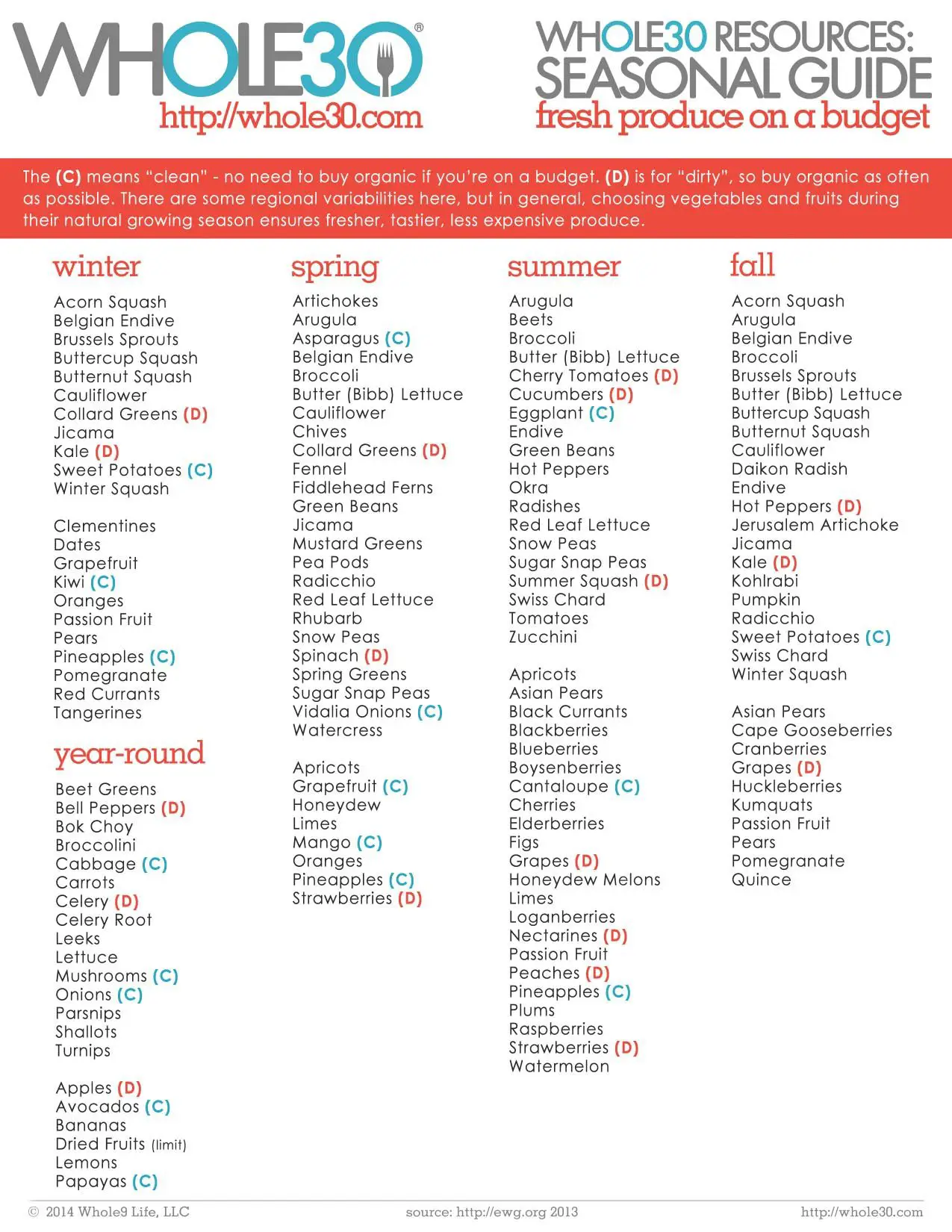
6. Plant Sterols and Stanols
Plant sterols and stanols, naturally found in fruits, vegetables, nuts, and seeds, have a similar structure to cholesterol. Consuming them can help block cholesterol absorption, ultimately lowering LDL cholesterol levels.
If you are concerned about high cholesterol levels, incorporating foods that are rich in plant sterols and stanols can be beneficial. These natural compounds help lower cholesterol by blocking its absorption in the body. Here is a list of foods that contain plant sterols and stanols:
- 1. Whole grains: Including oats, barley, quinoa, and brown rice in your diet can provide you with a good amount of plant sterols.
- 2. Nuts and seeds: Almonds, walnuts, flaxseeds, and chia seeds are excellent sources of plant sterols. Snack on these nutritious foods or add them to your meals for a cholesterol-lowering effect.
- 3. Legumes: Foods like lentils, chickpeas, and beans are not only rich in plant protein but also contain plant sterols.
- 4. Fruits and vegetables: Many fruits and vegetables naturally contain plant sterols. Opt for options like oranges, strawberries, apples, spinach, broccoli, and Brussels sprouts.
- 5. Plant-based oils: Use oils such as olive oil, avocado oil, and canola oil in your cooking. They contain plant sterols and stanols that can help manage cholesterol levels.
- 6. Fortified products: Some products, such as certain margarines, yogurt, and orange juice, are fortified with additional plant sterols or stanols for cholesterol management.
Incorporating these foods into your daily meals can support a healthy cholesterol profile. Remember, while they can aid in cholesterol reduction, it's important to follow an overall balanced diet and maintain an active lifestyle for optimal heart health.
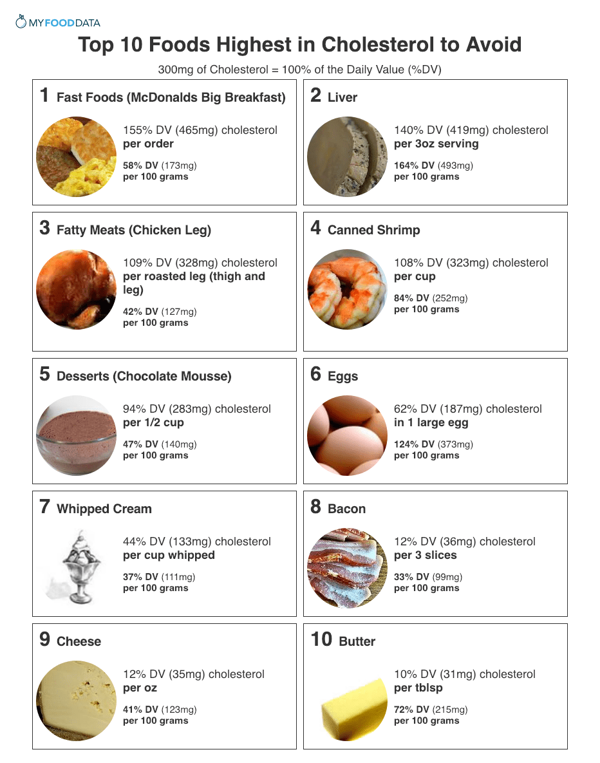
7. Olive Oil
Replacing unhealthy fats with heart-healthy fats, such as extra-virgin olive oil, can help reduce LDL cholesterol levels. Incorporating this beneficial oil in cooking, salad dressings, and marinades can improve your overall cholesterol profile.
Olive oil is a versatile and healthy oil that is often recommended for individuals looking to lower their cholesterol levels. It is an excellent addition to a cholesterol-friendly diet due to its numerous health benefits.
Benefits of Olive Oil
- Rich in Monounsaturated Fats: Olive oil is a primary source of monounsaturated fats which can help reduce LDL (bad) cholesterol levels in the body.
- Antioxidant Properties: Olive oil contains antioxidants that protect the body from harmful free radicals and reduce inflammation, which can contribute to high cholesterol.
- Improved Heart Health: Regular consumption of olive oil has been associated with lower risk of heart diseases, as it can improve blood vessel function and reduce blood pressure.
- Good Source of Vitamin E: Olive oil is a natural source of vitamin E, a powerful antioxidant that promotes heart health and protects against cholesterol oxidation.
- Delicious and Versatile: Olive oil can be used for cooking, salad dressings, and as a dipping oil, making it an easy and tasty addition to any diet.
How to Incorporate Olive Oil into Your Diet
Here are some simple ways to include olive oil in your daily meals:
- Use olive oil as a substitute for butter or margarine in cooking or baking.
- Drizzle olive oil over salads and vegetables as a healthier alternative to creamy dressings.
- Make your own olive oil-based vinaigrettes by combining olive oil with vinegar or lemon juice.
- Use olive oil as a marinade for meat, poultry, or seafood.
- Enjoy a piece of whole grain bread dipped in extra virgin olive oil as a nutritious snack.
Including olive oil in your diet is a smart choice to help avoid high cholesterol levels. With its monounsaturated fats and numerous health benefits, it can contribute to a healthier heart and overall well-being. Start incorporating olive oil into your meals today for a tastier and cholesterol-friendly diet.
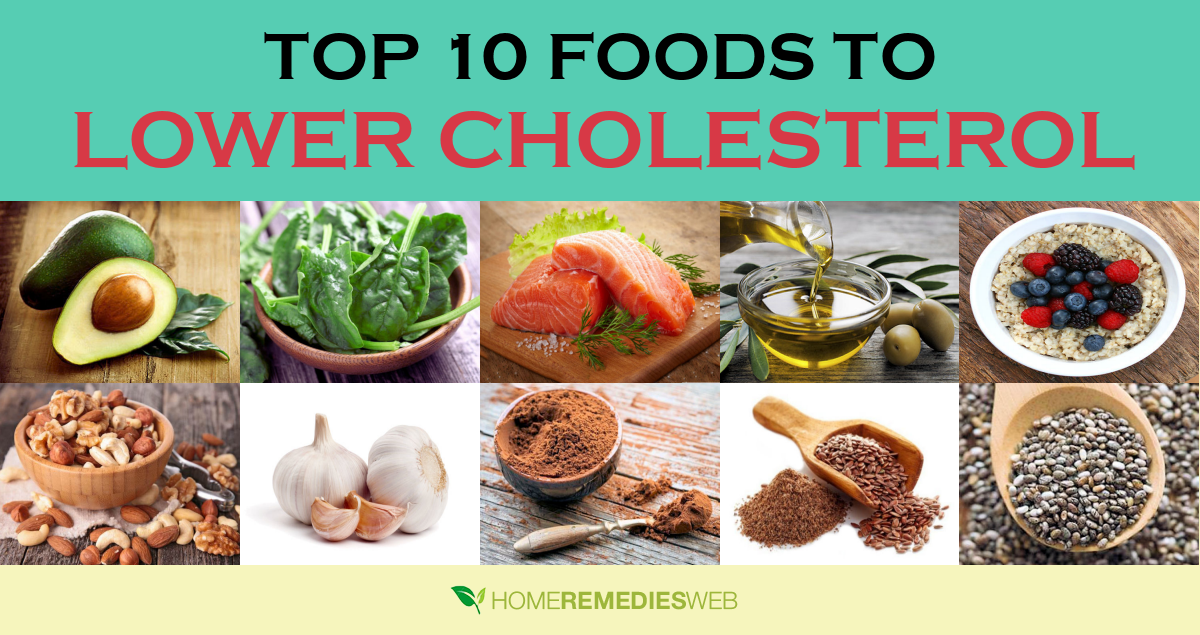
Key Takeaways
- Include oats, whole grains, fatty fish, nuts, and seeds in your diet to lower cholesterol levels.
- Consume a variety of fruits and vegetables rich in antioxidants to protect heart health.
- Incorporate legumes to improve cholesterol levels and boost essential nutrients intake.
- Plant sterols and stanols can be consumed through various fruits, vegetables, nuts, and seeds to block cholesterol absorption.
- Swap unhealthy fats with extra-virgin olive oil for improved cholesterol profile.
FAQ
Q1: Can high cholesterol levels be controlled solely through diet?
A1: While diet plays a significant role in managing cholesterol levels, factors like genetics and lifestyle choices also influence your overall cholesterol profile. It is recommended to adopt a holistic approach that includes a balanced diet, regular exercise, and consultation with a healthcare professional.
Q2: Are there any cholesterol-lowering medications available?
A2: Yes, there are medications available to control high cholesterol levels. However, medication should always be prescribed and monitored by a qualified healthcare professional. It is essential to follow medical advice and combine it with a healthy lifestyle.
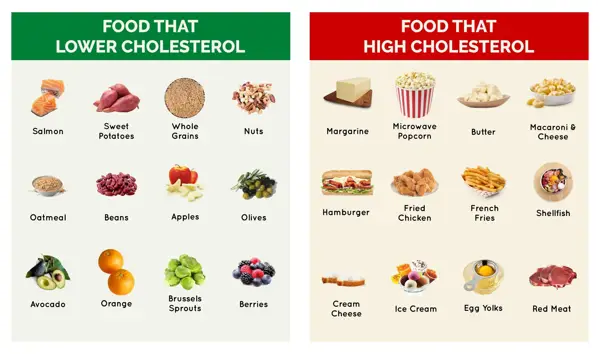


Recent Comments